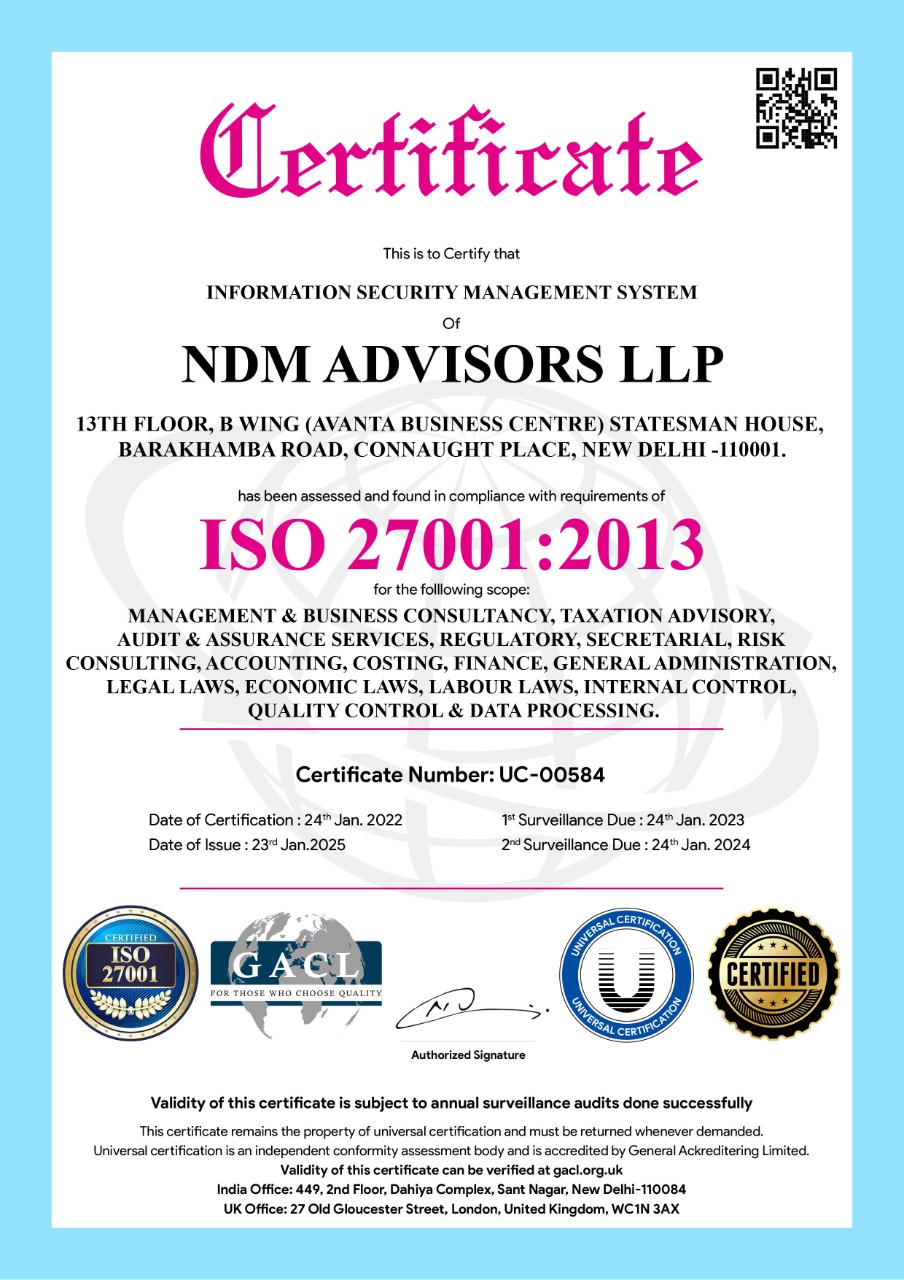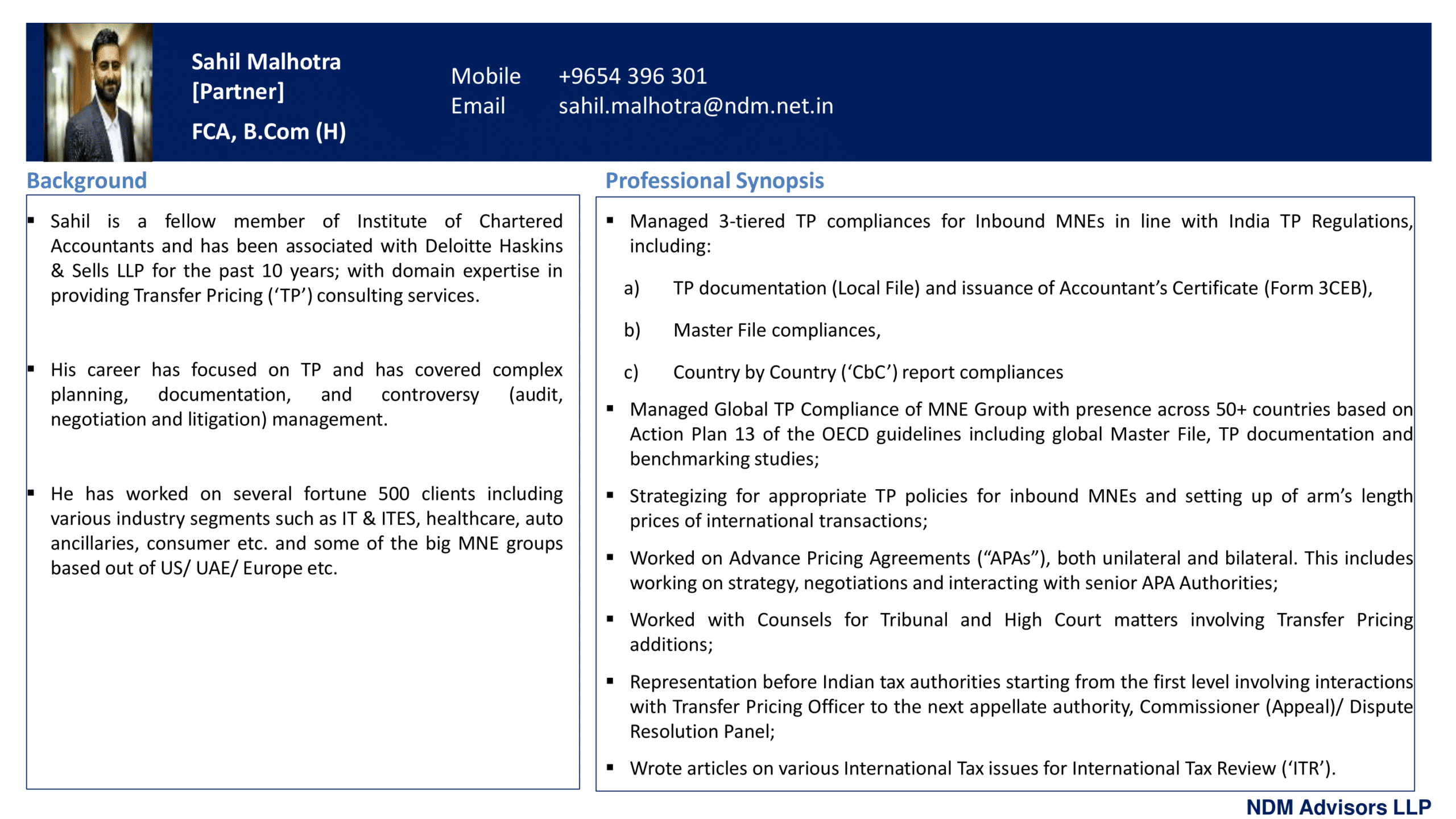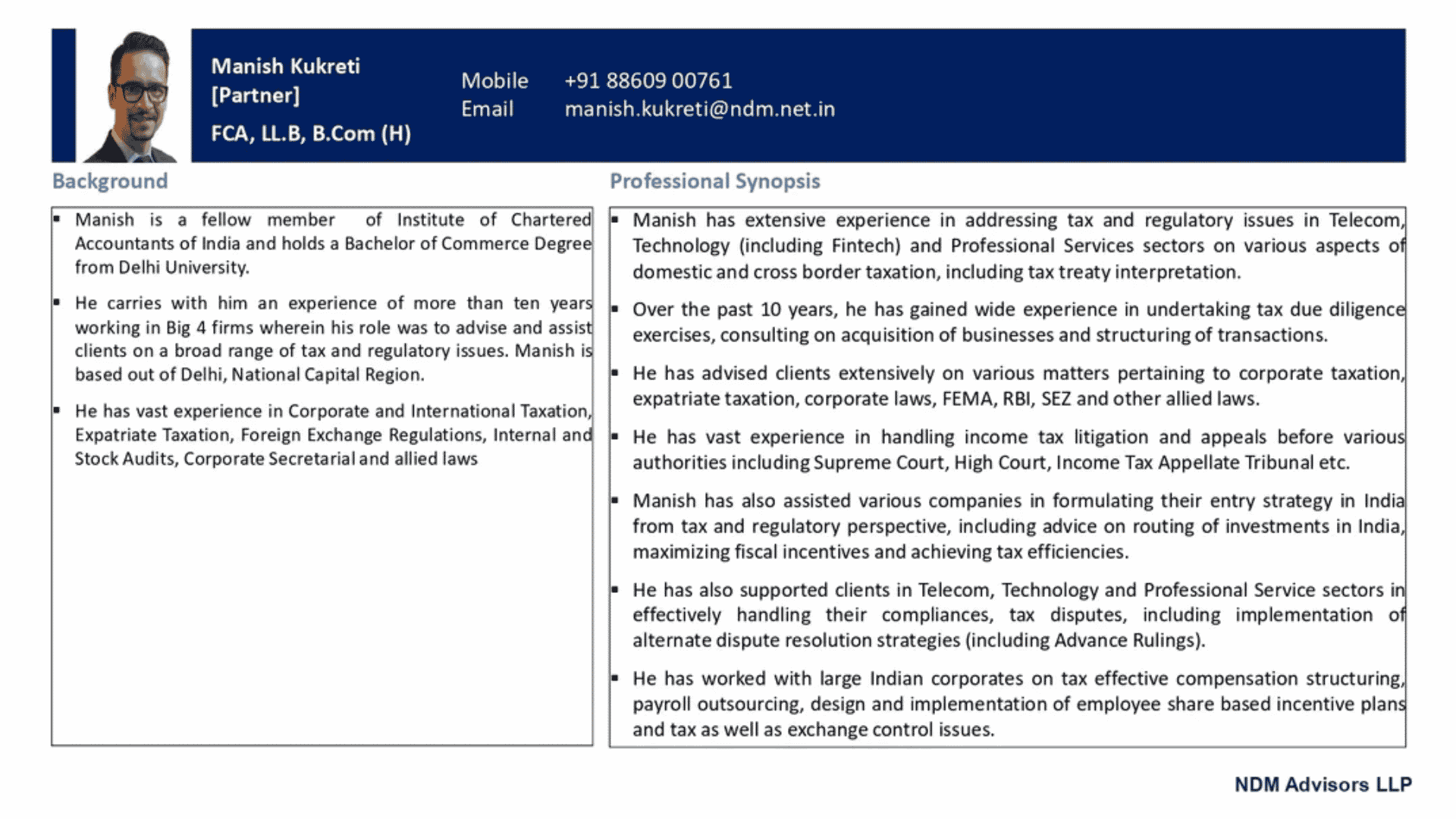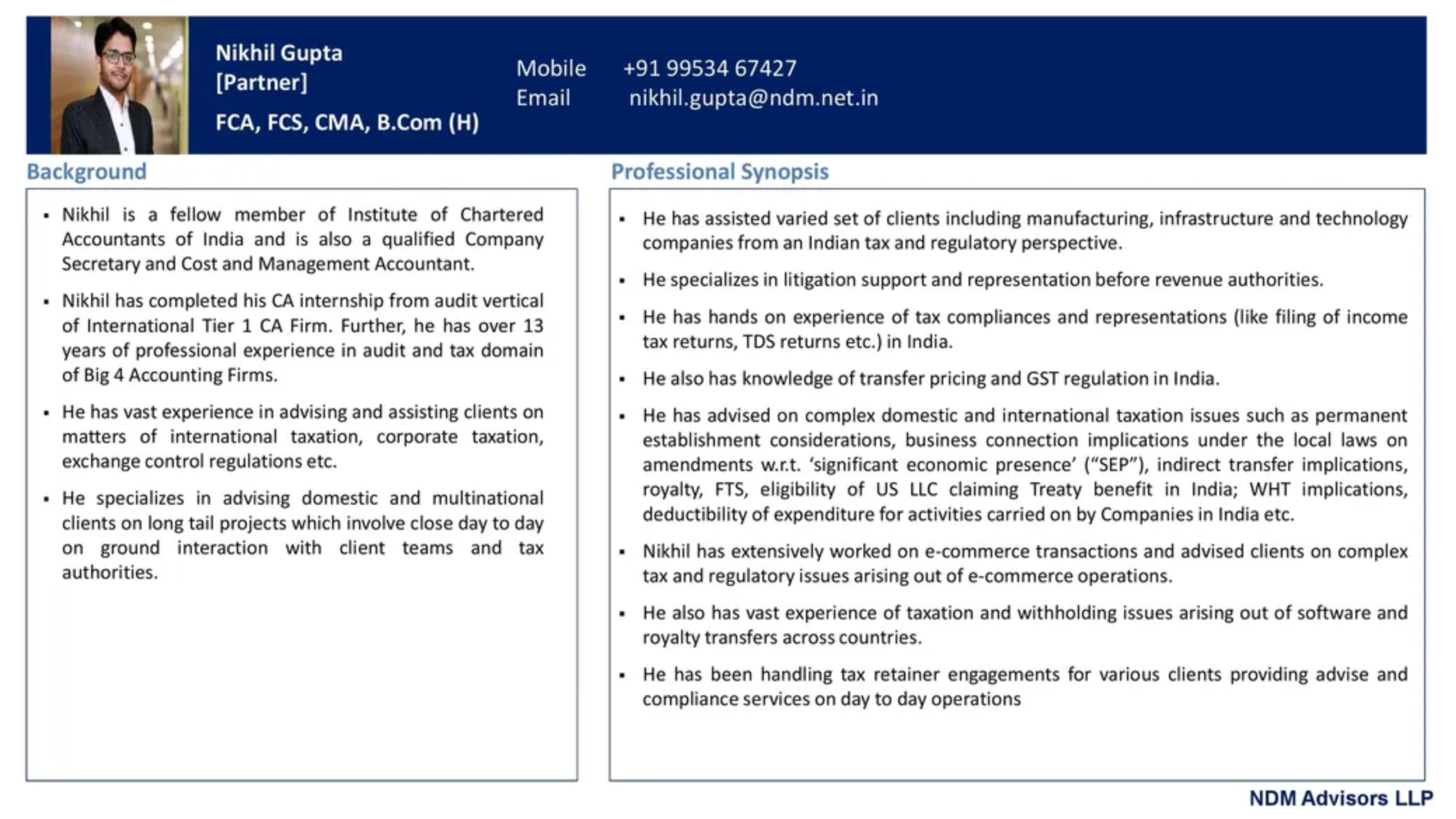Special Valuation Branch (SVB) under Custom laws- Monitoring Instrument in International Trade

This era of Globalisation is marked by accelerated cross border movement of goods and trades between the countries. For obtaining efficiencies of trade, multinationals operating in different geographies trade between group entities for catering to the world market. It becomes imperative for the multinationals to understand the nuances of Special Valuation Branch of Customs. Further, increased interaction and transparency between various government agencies has led increased vigilance of authorities on the pricing adopted by importers and exporters.
“The Special Valuation Branch investigates whether the valuation of transactions between ‘related persons’, such as intercompany transactions, that facilitate imports into India are valued appropriately and not to reduce Customs Duty liability…”
Importers including Group Entities importing goods from outside India from Related Parties, need to know about SVB’s.
SECTION 14. Valuation of goods. – (1) For the purposes of the Customs Tariff Act, 1975 (51 of 1975), or any other law for the time being in force, the value of the imported goods and export goods shall be the transaction value of such goods, that is to say, the price actually paid or payable for the goods when sold for export to India for delivery at the time and place of importation, or as the case may be, for export from India for delivery at the time and place of exportation, where the buyer and seller of the goods are not related and price is the sole consideration for the sale subject to such other conditions as may be specified in the rules made in this behalf.
In case where parties are related, an importer of goods needs to approach the SVB for determination of fair price of the goods being imported from group entity.

Special Valuation Branch (SVB’s) (In case of import of goods in India from a related party outside India)
Under customs laws, the Special Valuation Branch (SVB) specializes in investigation and assessment of transactions involving special relationships between buyer and seller and certain special features surrounding the sale of imported goods having influence on the value of import goods. A circular issued in 2001 previously governed the procedure to be observed by customs houses for cases referred to the SVB.
The erstwhile procedure suffered from various bottlenecks and also led to delay in completing the procedure of SVB. The same resulted in increase in Extra Demand Deposit (EDD) required to be paid by the importer and therefore increased the overall cost of goods, thereby reducing the overall profit of the imported enterprise. Ultimately, this worked against the importer and “Make in India” vision of Indian Government.
Therefore, CBEC had issued Circular No.5/2016- Customs on 9 February 2016, which rationalized the procedure of SVB.
The Special Valuation Branch (SVB) is a special unit within the Indian Customs department which specializes in investigating the valuation of transactions between ‘related persons’, as defined under Rule 2 (2) of Customs Valuation (Determination of Value of Imported Goods) Rules, 2007.
The SVB’s function is to examine the impact of such intercompany relationship on the invoice value of the imported goods to ensure that the invoicing is at the ‘arm’s length price’ or identify if they have been ‘undervalued’ for reducing Customs Duty liability.
India’s customs and transfer pricing departments are increasingly synchronizing their efforts to ensure that the same assessee does not adopt contradictory positions on customs valuation and transfer pricing.

Who is Related Party?
The term ‘related’ has been defined in Rule 2 (2) of the Customs Valuation Rules, 2007 to establish that the buyer and seller shall be deemed to be related if:
- They are officers or directors of one another’s businesses;
- They are legally recognized partners in business;
- They are employer and employee;
- Any person directly or indirectly owns, controls or holds five percent or more of the outstanding voting stock or shares of both of them;
- One of them directly or indirectly controls the other;
- Both of them are directly or indirectly controlled by a third person;
- Together they directly or indirectly control a third person; or
- They are members of the same family.
Therefore, typically all transactions involving import of goods by an Indian entity from its holding company or any associated/affiliated group company located outside India are considered to be transactions between related parties, and therefore, liable to be investigated by the SVB branch of Customs authorities.
As per the prescribed procedures, the following cases are not required to be taken up for inquiries by SVBs:
- Import of samples and prototypes from related sellers.
- Imports from related sellers where duty chargeable is unconditionally fully exempted or nil.
- Any transaction where the value of imported goods is less than INR 100,000 (approximately US$1,344) but cumulatively these transactions do not exceed INR 2.5 million (approximately US$33,588) in any financial year.
Importers who are related to the supplier in terms of Rule 2(2) of the Customs Valuation (Determination of Value of Imported Goods) Rules, 2007, Rule 2(1) of the Customs Valuation (Determination of Value of Export Goods) Rules, 2007, and those cases which fall under the purview of Section 14(1) of the Customs Act, 1962, are required to register with the SVB.

Conclusion
It is imperative for Indian importers trading with related entities to be cautious of customs regulations and also documentational aspects surrounding the same. It is also important that the pricing adopted and furnished to the customs authorities shall not contradict the pricing adopted for transfer pricing (tax) purposes. Also, as a matter of procedure for price verification, Customs authorities test the pricing charged by the overseas supplier to unrelated parties in India and therefore, before finalising the pricing, the margins charged from unrelated entities must also be tested.
In case of queries, drop us a line on communications@ndm.net.in
Have Any Question?
Send us a message and tell us more about your business and financial goals. We will get back to you soon to schedule a consultation.
- +91 9873210394
- Communications@ndm.net.in


















